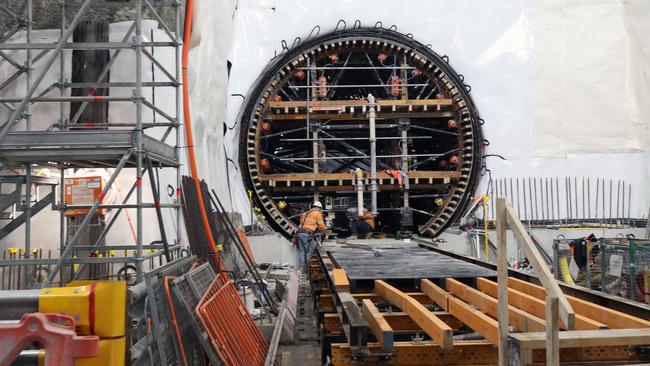Australia has a wages problem and a profits problem

But you could be forgiven in thinking that Australia had a wages problem not a profits problem. Our performance on both is actually woeful and points to the fragility of our economy.
While real wages have gone backwards for way too long, Australia’s profit share, while having risen dramatically over recent decades, is dominated by profits in the mining sector (up 13 percentage points since 2000), which means that in recent times the profit share of non-mining Australia has been in serious decline (down nearly 5 percentage points).
So, it’s not just a wages problem, but also one of a poor profits performance for much of the economy.
The Albanese government’s Jobs Summit must bring much-needed consensus on economic reforms to boost investment, productivity, dynamism, and competition – the means to meaningful and justly remunerated jobs – and avoid the slippery slope of a class war which governments, business, and unions have all been guilty of in the past.
And it takes place against the backdrop of an economy at full employment but where the gap between business confidence and consumer confidence is as large, if not larger, than we have ever seen. It’s an economy running at its limits, more on fumes than with substantial petrol in the tank.
As policy makers have shied away from genuine reforms over recent decades, we’ve sleepwalked into a terrible trifecta where profits in the economy are being held up mainly by one sector (mining), wages share has declined, and we have a genuine productivity problem in our economy which, together, will undermine growth, jobs, and income into the future and has introduced a fragility into our economy.
For too long, the jobs debate has been framed by an overriding narrow focus on industrial relations by the protagonists of the union movement and business groups. But the banners of choice and flexibility have been trojan horses for making it easier to sack people and cut pay, while the slogans of better pay and wage justice have pandered to the status quo and increased the hurdle rates to transformation and reform.
The Jobs Summit cannot be mired in such ideological postures or class wars; its real target should be a consensus on reform which lifts our woeful investment performance and productivity which has been decline for over a decade.
So, to tackle more jobs and better pay, the Jobs Summit should canvass a few key things.
First, instead of old battle grounds of flexibility in industrial relations, we need a new focus on focus on building dynamism in the economy. This is about more competition, and more innovation to spur on new capital formation across the economy. An uncompetitive economic structure dominates too many industries and underscores poor performance of the past while providing pricing strength today, thus prolonging our inflation cycle.
Second, we need to substantially lift investment in the economy. This is a business responsibility to shift from a short-term dividends horizon to one of longer term modernisation and growth. Governments need to rethink the conditions which can give rise to more investment, particularly to facilitate the recapitalisation of the economy on its path to net zero.
Third, we need a skills agenda which needs to be a driver of economic growth and productivity rather than an afterthought. A rethink of our education and training system, the flexibility of micro-credentialling, especially for industries in transition, and a profound rethink of our training system and skills migration is now an imperative.
Fourth we need a culture of innovation – driving new ideas, new processes, increasing human capital – is a no-brainer. Australia languishes in global league tables on this and, in a world economy undergoing profound change, Australia will be left far behind if we don’t accelerate now.
Fifth, a new industry policy – the domain where flexibility should be the catchcry – focused on encouraging fast adoption of new technologies and using the imperative to decarbonise as the means to build the industries of the future is now necessary.
Industry policy, which also better manages the new triangulation of economics, technology, and security, rather than a flirtation with overt nationalism, is important for Australia to capture the dividends of a changing economic environment and the benefits of our proximity to Asia.
The Jobs Summit can easily descend into a surface discussion on jobs and incomes, but the real task is building consensus on reforms to boost investment and productivity – the only way to secure jobs growth and real wages for workers and decent profits for Australian business.
Pradeep Philip is the head of Deloitte Access Economics




Good incomes for workers and good profits for business are key outcomes we should expect when we think about a strong economy.